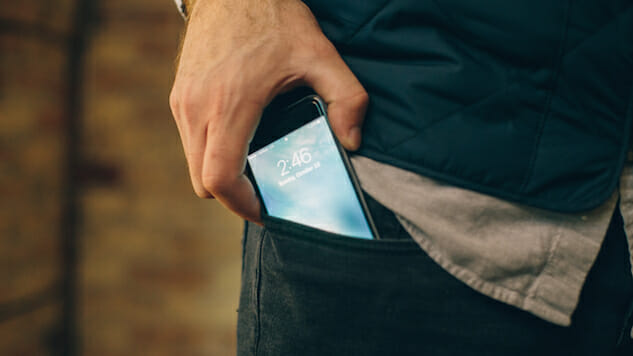
It’s no secret that we live in a digital age. Everything from mail to music to maps to money management has gone online. And we can access these apps everywhere—on our phones, laptops and tablets—so long as there’s access to the Internet. Gartner claimed that 6.4 billion devices were connected to the Internet by the end of 2016, and Cisco forecasts 50 billion devices will be online by 2020.
Unfortunately, all this time spent online can become a bit draining. That’s why so many have started to see the power in unplugging—spending time away from technology to be more productive, fulfilled and content.
The Effects of Plugging In
Need more incentive? Let’s look into the negative effects that a plugged-in lifestyle can have on your state of mind:
1. Your constant online presence might be keeping you up at night. One study showed that young people who spent time on their computers at night had sleep disturbances, as well as increased stress levels and diminished performance the day after the night of poor sleep.
2. Social media makes us jealous, whether we like it or not. That’s because our friends and family members are likely divulging the stories and sharing the pictures that show the best, happiest aspects of their lives. Comparing that to your own life—and knowing its ups and downs from the inside-out—might have you feeling like your own life isn’t up to snuff.
3. If you’re constantly plugged in, you probably have a hard time concentrating. It’s been proven time and time again that multi-tasking is bad news for productivity. In other words, it’s really hard to concentrate when your phone is ringing while you’re working on a project on your desktop, for example. You’ll also find distractions abound on the web.
One study even showed that the very presence of a cell phone made those in the room feel distracted—they proved less able to perform mental tasks with the presence of a device.
4. Your time spent online can affect your personal relationships, too. Of course, there’s the fact that you spend more time scrolling through feeds than paying attention to the person in front of you. But if you’re very active on social media in sharing your views, those in your circle might find it a bit off-putting, especially if you make it clear that your opinions are different from theirs.
Oh, and posting vague emotional statuses about someone who’s annoying you or hurting your feelings? The person could figure out they’re the subject of your frustrations, leading to confrontation or further tension.
How to Unplug
Now that you know how plugging in can affect your body, mind, mood, productivity and personal life, you’re probably wondering how to make a change. Here are some of the best ways to get yourself to put down the screens, even if only for a short while:
1. Don’t Start Your Day By Surfing
What’s your first instinct as you wake up in the morning? If you answered, “Check my phone,” it might be time for a digital detox.
Find a stimulating activity to start your day, such as meditation, yoga or outdoor running. Start with that instead to get your brain working more organically. You’ll certainly head into your day, whether it’s filled with work or personal commitments, feeling more relaxed and focused.
2. Whittle Your Technology Usage
If you’re working on a big project, you need to focus. Checking your phone every few minutes—or listening to its distracting buzzes and vibrations—won’t do much to help you do so.
Instead, set a timer and don’t check your phone within that time. Be sure to turn off any sound effects it might have on deck to distract you. Whether it’s 30 minutes, an hour or longer, you’ll likely find yourself getting way more done. That’s what happens when you give something your full and undivided attention!
3. Leave Your Phone Behind
You can say you’re going to take the plunge and unplug for a bit—but then your phone is in your pocket, and it’s a long line at the grocery store. Might as well just check and make sure you didn’t miss anything, right? Sure, but it defeats the purpose of unplugging.
An easier way to make sure you’re unplugged? Leave your devices at home. This will get rid of the temptation to sneak back online altogether.
Ready to give it a try and reap the benefits of disconnecting from digital? Without a phone or tablet in hand, you might just find yourself looking around and really appreciating the world around you. If that’s not incentive enough to unplug, we don’t know what is.
Image: ThoroughlyReviewed, CC-BY
Anum Yoon is Paste’s Unplugged columnist and a Philly-based blogger who founded Current On Currency.